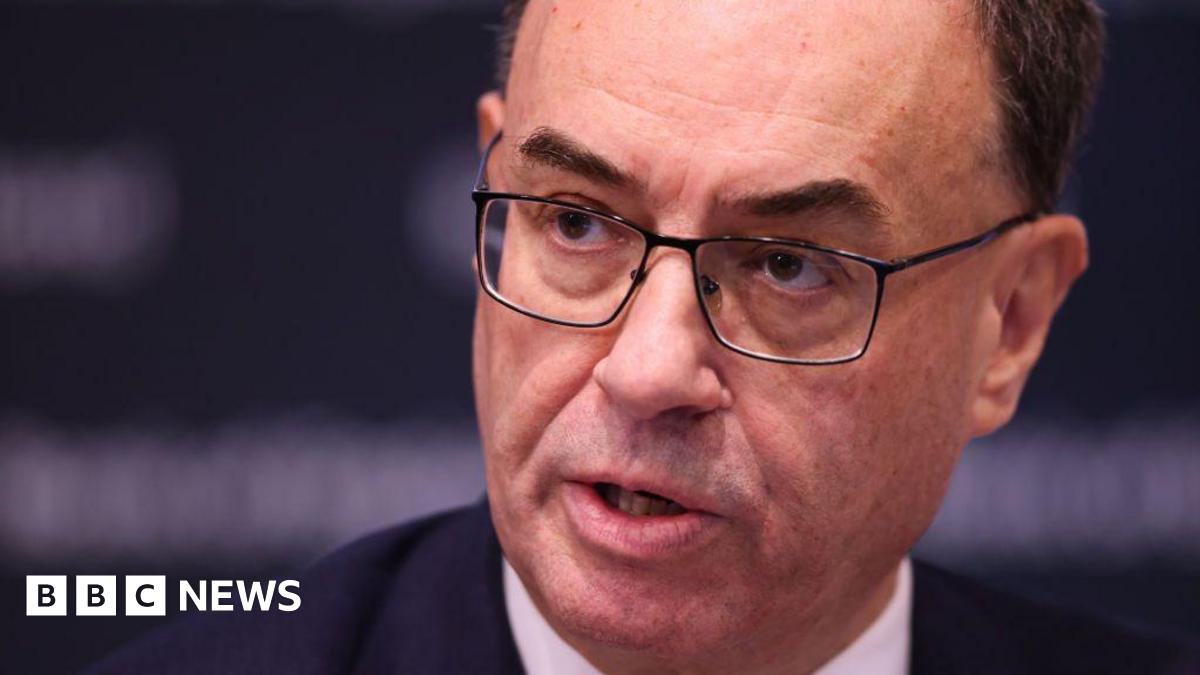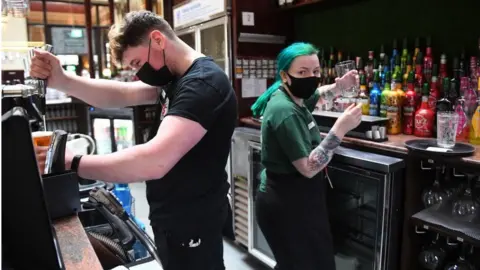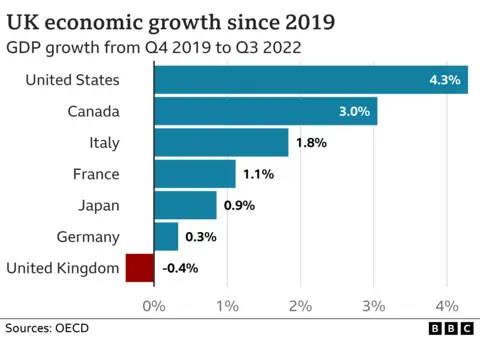D
Deleted member 585708
Guest

Bank of England boss says UK must 'rebuild relations' after Brexit
Governor Andrew Bailey delivers his strongest comments yet on the UK's departure from the EU.
www.bbc.co.uk
The UK must "rebuild relations" with the EU "while respecting the decision of the British people" who voted to leave in 2016, the Bank of England's governor has said.
Andrew Bailey's Mansion House speech to investors marked some of his strongest comments yet on Brexit, saying one of its consequences has been weaker trade.
He has previously avoided commenting on the topic because of the Bank's independence from Westminster politics.
"As a public official, I take no position on Brexit per se," he said. "But I do have to point out consequences."
Mr Bailey said the changed relationship with the EU has "weighed" on the economy.
"The impact on trade seems to be more in goods than services... But it underlines why we must be alert to and welcome opportunities to rebuild relations while respecting that very important decision of the British people."
Mr Bailey also said that the UK should not focus "just on the effects of Brexit", warning about "geopolitical shocks and the broader fragmentation of the global economy".
His Brexit comments go much further than he previously has on the topic. Last November, he said the decision had "led to a reduction in the openness of the UK economy".
Assessing the impact of the UK's decision to leave the EU on the economy has been tricky given the multiple economic shocks in recent years.
The Office for Budget Responsibility and other independent analysts estimate the economy will take a 4% hit over 15 years as a result.
Goods trade, especially in food and farm exports, has been especially hit by the imposition of new trade barriers. Trade in services, such as banking, has done better than expected, however.
The government remains opposed to rejoining the EU, but Prime Minister Keir Starmer and some EU politicians have said there could be a better relationship.
Spain’s Finance Minister Carlos Cuerpo told the BBC: "We need to be positive here and optimistic that a better deal can be actually closed on that front."
A UK government spokesperson said: "We are committed to resetting our relationship with our European partners... and improving our trade and investment relationship."
Vicky Pryce, chief economic advisor to the Centre for Economics & Business Research, said Mr Bailey may have made his comments due to the election of Donald Trump as US president.
Trump made a repeated campaign promise to levy a 20% tax on all imports of goods into the US, and a 60% tariff on Chinese imports.
Ms Pryce said if that were to happen "it is actually quite questionable whether the UK could have a special relationship with the US when it still trades quite substantially with Europe".
Mr Bailey's Mansion House address came alongside a speech by Chancellor Rachel Reeves, who talked about her plans to shake up the UK pension system in a bid for growth.
She wants council pension pots to be merged so they can make bigger investments to generate higher returns, a move criticised as risky by some.
“The UK has been regulating for risk, but not regulating for growth,” she said.
The annual event comes as the government also faces criticism from businesses for holding back growth through tax raises, which Reeves has said are necessary to "properly fund" public services.
Reeves said that regulations brought in after the 2008 global financial crisis "resulted in a system which sought to eliminate risk-taking", adding that has now "gone too far".
She said financial services in the UK "were the crown jewel in our economy" but that "we cannot take the UK's status as a global financial centre for granted".
The government will publish a financial services strategy in the spring, she said.
It will focus on fintech, sustainable finance, asset management, insurance, and capital markets, she said, "laying the foundations for more private investment".
She said sustainable investments represented "a huge opportunity".
---
LOL.
But thank God the upside was that we "took back control of our borders", the perennial promise of the right, even if trade has suffered.
- Trade
Goods trade between the UK and the EU has declined, with exports down 27% and imports down 32% between 2021 and 2023. However, services have performed better than expected, with service exports now outpacing goods exports.
- Jobs
The UK has 1.8 million fewer jobs than it would have if Brexit hadn't happened, with the average Briton nearly £2,000 worse off.
- GDP
The UK's economy is estimated to be 2.5% smaller in 2023 than it would have been if the UK had remained in the EU. The hit to GDP is expected to increase to 3% in 2024 and 3.2% by 2025.
- Uncertainty
Brexit has increased uncertainty about the UK's future trade policy, which has reduced international trade.
- Offshoring
British firms have increased offshoring to the EU, while European firms have reduced new investments in the UK.
- Food supply
Food supply disruptions remain a concern, as the UK imports nearly half of its food.
Oh, wait...

Britain’s immigration surge ‘bigger than all other rich nations’
More than 700,000 ‘permanent migrants’ moved to the UK last year, OECD says
Britain’s immigration surge ‘bigger than all other rich nations’
Britain’s immigration surge ‘bigger than all other rich nations’
More than 700,000 ‘permanent migrants’ moved to the UK last year, OECD says

Britain has most illegal migrants in Europe, study finds
Figures showing one in 100 of the population is in the country illegally disclosed following biggest day for Channel crossings this year

I can't believe it. They promised to fix this, and turns out they weren't fixing anything at all!


